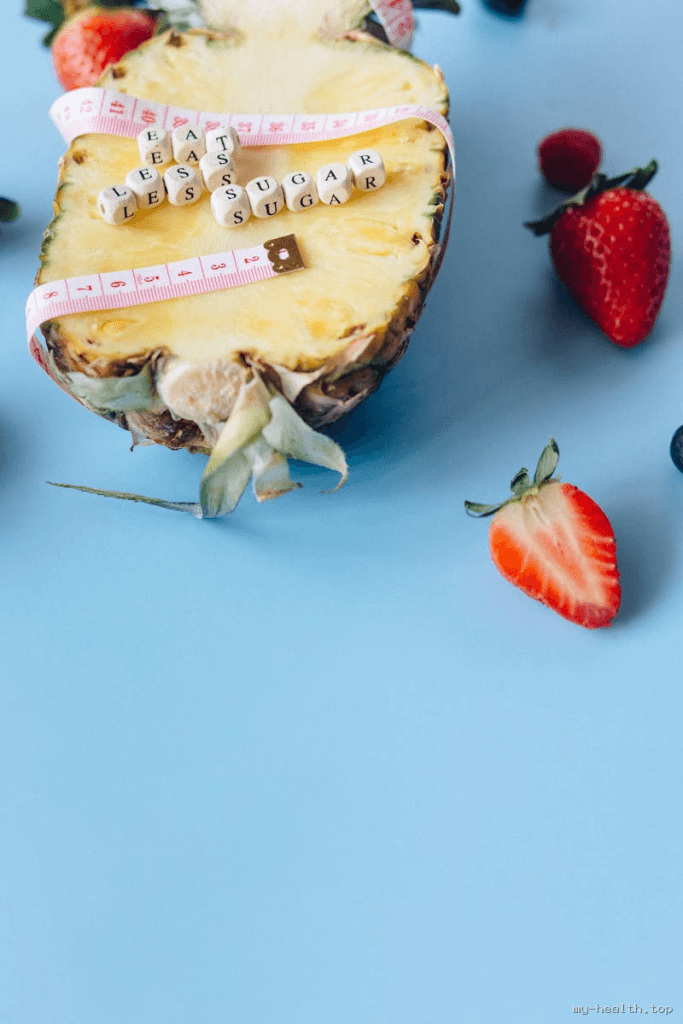This article is for informational purposes only and is not a substitute for professional medical advice. Always consult your healthcare provider for personalized recommendations.
Understanding Diabetes and Its Challenges
Diabetes is a chronic condition that affects how your body processes blood sugar (glucose). When you have diabetes, your body either doesn’t produce enough insulin or doesn’t use insulin effectively. This can lead to high blood sugar levels, which can cause serious health complications over time, such as heart disease, kidney damage, and neuropathy. The pathophysiology of diabetes involves complex interactions between insulin secretion, insulin action, and glucose production in the liver. For instance, in Type 2 diabetes, insulin resistance often develops due to factors like obesity, inactivity, and genetic predisposition, leading to impaired glucose uptake by cells.
Managing diabetes involves a comprehensive approach that includes monitoring blood sugar levels, making dietary changes, engaging in regular physical activity, and sometimes using medications. However, many people are interested in exploring natural strategies to help manage their condition effectively. How can we harness the power of nature and lifestyle to support diabetes management?
Natural Strategies for Managing Diabetes
1. Dietary Adjustments
What you eat plays a crucial role in managing diabetes. A balanced diet can help stabilize blood sugar levels and improve overall health. Consider the following dietary strategies:
- Focus on Whole Foods: Incorporate plenty of fruits, vegetables, whole grains, and lean proteins into your meals. Foods high in fiber, like legumes and whole grains, can help regulate blood sugar levels by slowing digestion and preventing spikes in glucose.
- Control Carbohydrate Intake: Monitor your carbohydrate consumption. Choose complex carbohydrates over simple sugars, as they are digested more slowly, leading to a gradual increase in blood sugar. For example, opt for brown rice instead of white rice.
- Healthy Fats: Include sources of healthy fats, such as avocados, nuts, and olive oil, which can improve insulin sensitivity and provide essential fatty acids that support overall health.
Additionally, consider portion control and mindful eating practices. Eating smaller, more frequent meals can prevent large fluctuations in blood sugar levels.
2. Regular Physical Activity
Physical activity is essential for everyone, but it holds particular importance for those managing diabetes. Regular exercise helps your body use insulin more effectively and can lower blood sugar levels. Aim for at least 150 minutes of moderate aerobic activity each week, such as:
- Walking
- Swimming
- Cycling
Strength training exercises, like lifting weights or bodyweight workouts, are also beneficial. They can increase muscle mass, which can improve blood sugar control by enhancing glucose uptake by muscle cells. Incorporating flexibility and balance exercises, such as yoga or tai chi, can further enhance overall fitness and well-being.
3. Stress Management
Did you know that stress can affect your blood sugar levels? When you’re stressed, your body releases hormones like cortisol, which can raise blood sugar. Incorporating stress-reducing techniques into your routine can help manage diabetes effectively. Consider:
- Meditation: Practicing mindfulness or meditation can lower stress and improve your overall well-being. Even a few minutes a day can make a difference.
- Yoga: This ancient practice combines physical postures with breathing exercises, making it an excellent way to reduce stress and improve flexibility.
- Deep Breathing: Simple deep-breathing exercises can help calm your mind and body. Try inhaling deeply through your nose, holding for a few seconds, and exhaling slowly through your mouth.
Incorporating hobbies and social activities can also alleviate stress. Engaging in enjoyable activities can provide a sense of fulfillment and help distract from daily pressures.
4. Herbal Supplements
Some herbal supplements may help manage diabetes, though you should consult with a healthcare professional before starting any new regimen. Research has shown that:
- Cinnamon: Some studies suggest that cinnamon may improve insulin sensitivity and lower blood sugar levels, making it a flavorful addition to meals.
- Berberine: This compound found in several plants may help regulate glucose and lipid metabolism. It has been shown to lower blood sugar levels in individuals with Type 2 diabetes.
- Fenugreek: Fenugreek seeds are high in soluble fiber, which may help manage blood sugar levels by slowing digestion and absorption of carbohydrates.
However, it’s crucial to approach herbal supplements with caution. Not all supplements are created equal, and some may interact with medications or have side effects. Always discuss with your healthcare provider before adding them to your routine.
5. Monitoring Blood Sugar Levels
Regularly checking your blood sugar levels is vital for managing diabetes. It helps you understand how your body responds to different foods and activities. Consider using a continuous glucose monitor (CGM) or traditional blood glucose meters to track your levels throughout the day. Keeping a log of your readings can help identify patterns and inform your dietary and lifestyle choices.
Additionally, understanding the glycemic index (GI) of foods can aid in making informed choices. Foods with a low GI are digested slowly, leading to a gradual rise in blood sugar, while high-GI foods can cause rapid spikes.
Myth vs. Fact
| Myth | Fact |
|---|---|
| People with diabetes can’t eat sweets. | People with diabetes can enjoy sweets in moderation, especially if they balance them with other healthy foods and monitor their blood sugar levels. |
| All carbohydrates are bad for diabetes. | Not all carbs are created equal. Whole grains and fiber-rich foods can be beneficial and are essential for a balanced diet. |
| Insulin is a cure for diabetes. | Insulin helps manage diabetes but is not a cure. Lifestyle changes are essential for long-term management and can significantly improve quality of life. |
| Exercise is only beneficial for weight loss. | Exercise improves insulin sensitivity and overall health, regardless of weight. It can enhance mood and reduce stress, benefiting diabetes management. |
Patient Vignette
Meet Sarah, a 45-year-old woman diagnosed with Type 2 diabetes. Initially overwhelmed by her diagnosis, she decided to take control of her health. Sarah began by adjusting her diet, focusing on whole foods and reducing her sugar intake. She incorporated walking into her daily routine and practiced yoga to manage stress. Over six months, Sarah successfully lowered her blood sugar levels and lost weight, feeling more energetic and empowered. Her journey illustrates that with dedication and the right strategies, managing diabetes naturally is achievable.
Frequently Asked Questions
What are the best foods for managing diabetes?
Foods high in fiber, lean proteins, healthy fats, and non-starchy vegetables are excellent choices. Examples include leafy greens, nuts, seeds, and whole grains. Incorporating a variety of colors on your plate can also ensure a range of nutrients.
Can I reverse Type 2 diabetes naturally?
While there is no definitive cure, many individuals can manage or even reverse Type 2 diabetes through significant lifestyle changes, including diet and exercise. The key is consistency and commitment to healthier choices.
How often should I check my blood sugar?
The frequency of blood sugar monitoring depends on your treatment plan. Consult your healthcare provider for personalized recommendations. Generally, checking before meals and a couple of hours after can provide valuable insights.
Is it safe to use herbal supplements for diabetes?
Some herbal supplements may be beneficial, but it’s essential to consult with your healthcare provider before starting any new supplements to avoid potential interactions with medications.
How does stress affect diabetes?
Stress can lead to higher blood sugar levels due to the release of stress hormones. Managing stress through relaxation techniques can help maintain better blood sugar control. It’s important to find what works best for you, whether it’s through physical activity, hobbies, or relaxation practices.
Key Takeaways
- Dietary changes, including focusing on whole foods and controlling carbohydrates, are crucial for managing diabetes.
- Regular physical activity enhances insulin sensitivity and helps regulate blood sugar levels.
- Stress management techniques, such as yoga and meditation, can positively impact diabetes control.
- Consult with healthcare professionals before starting any herbal supplements for diabetes management.
- Regular blood sugar monitoring is essential for understanding your body’s response to different foods and activities.
References
- PubMed: Diabetes Management
- CDC: Diabetes Overview
- NHS: Diabetes Prevention
- WHO: Diabetes Facts
- UpToDate: Diabetes Management Strategies
- American Diabetes Association: Nutrition Recommendations for Diabetes








Post a comment